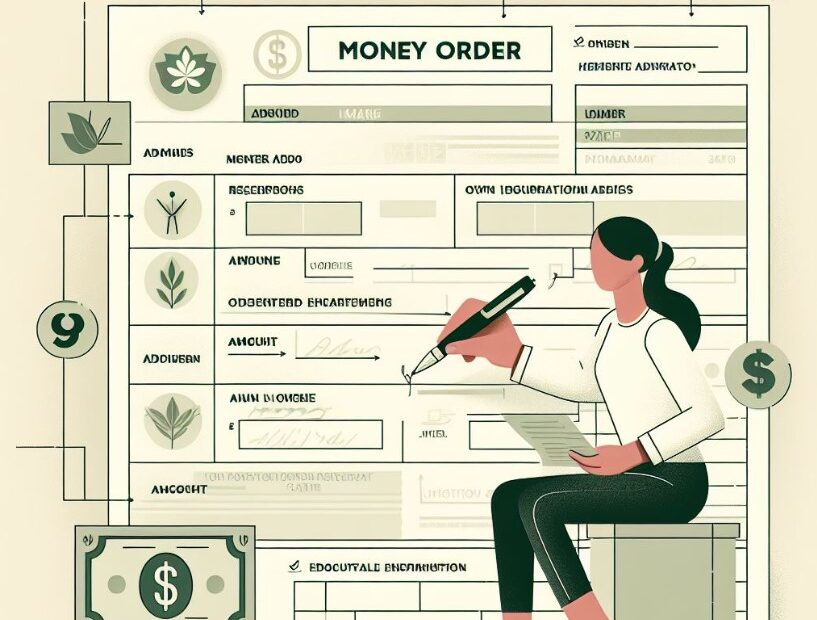In this article, we’ll explain What Is A Money Order? A money order is a secure payment method used to transfer funds. Unlike personal checks, money orders are prepaid, reducing the risk of bouncing. They provide a reliable alternative for those without access to traditional banking services.
What Is A Money Order?
A money order is a prepaid, secure form of payment used to transfer funds between parties. A money order is a form of payment that serves as a safe alternative to cash or personal checks. It represents a prepaid voucher, ensuring that the recipient receives the exact amount specified.
Unlike traditional banking instruments, money orders are available to individuals regardless of whether they hold a bank account. They offer a unique blend of accessibility and security, making them particularly useful in transactions where personal checks and cash may not be preferable or accepted.
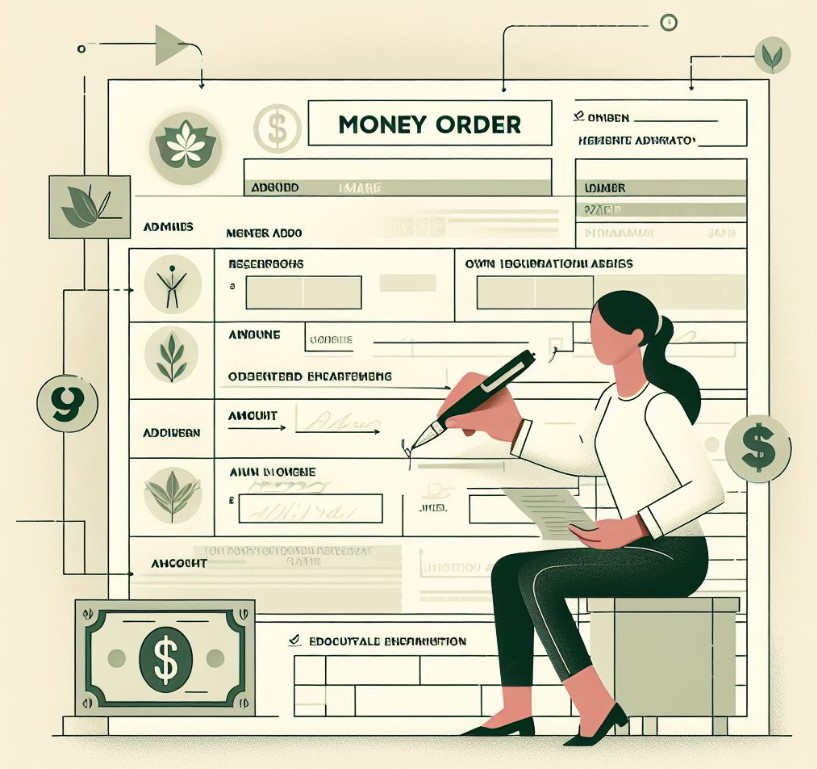
How Do Money Orders Work?
Obtaining a money order involves visiting authorized locations such as post offices, banks, or retail stores like Walmart and Western Union. The process is straightforward: you specify the amount, pay for the money order plus a small fee, and fill out the recipient’s details.
It’s essential to keep the receipt for tracking and proof of purchase. Money orders typically have a limit, often set at $1,000, which makes them suitable for smaller transactions.
Features Of Money Order
Here is an image that provides an overview of the features of a money order, including its security, prepaid nature, acceptance without a bank account, wide acceptance, traceability, fixed amount, specific payee designation, and non-refundable aspect.
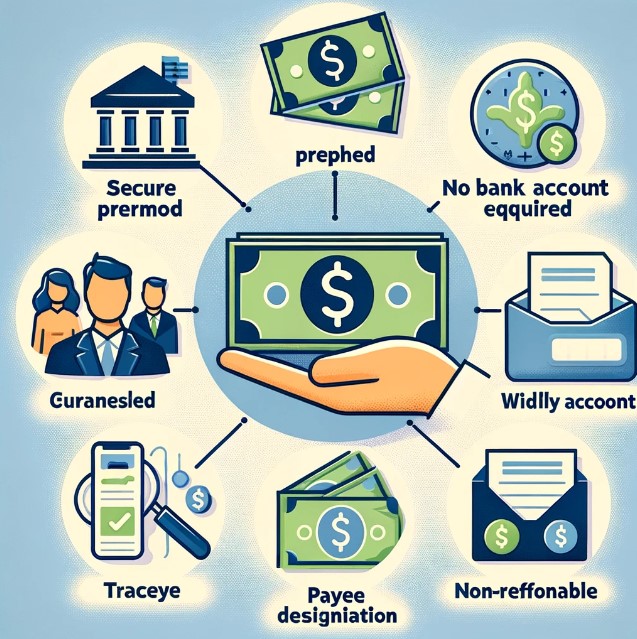
Advantages and Disadvantages of Money Orders
One of the main advantages of money orders is their security. Since they are prepaid, the funds are guaranteed for the recipient, and personal banking information remains undisclosed. Furthermore, they are widely accepted and do not require a bank account from either the sender or the recipient.
However, drawbacks include the possibility of losing the money without recourse if the money order is cashed fraudulently, and the fees associated with purchasing them.
Purchasing a Money Order
To purchase a money order, present the necessary cash or a debit card at a suitable location. The required details typically include the payee’s name, your address, and your signature.
The cost varies based on the purchase location, with fees generally ranging from $1 to $5. It’s crucial to fill out the money order accurately to prevent any issues with the transaction.
Using Money Orders for Payments
Money orders are particularly beneficial in situations requiring mailed payments or when private financial information needs to be safeguarded. They are ideal for individuals without access to traditional banking services. Tracking a money order is possible through the receipt provided at the time of purchase, adding a layer of security to ensure the funds reach the intended recipient.
Security and Scams
While money orders offer a secure form of payment, they are not immune to scams. Buyers should be wary of fraudulent money orders and are advised to purchase them from reputable sources only.
If a money order is lost or stolen, reporting to the issuer immediately is critical for attempting to recover the funds. Detailed anti-fraud features are often embedded to help authenticate genuine money orders.
Alternatives to Money Orders
For those seeking alternatives to money orders, electronic transfers, cashier’s checks, and peer-to-peer payment apps present viable options. Each alternative comes with its own set of benefits and limitations, such as higher fees for cashier’s checks or the necessity of a bank account for electronic transfers. Evaluating the specific needs of each transaction can help determine the most suitable form of payment.
Refunding and Canceling Money Orders
Refunding or canceling money orders can be a complex process, largely dependent on whether the money order has been cashed or not. If you find yourself in a situation where you need to cancel a money order, immediate action is required. Contact the issuer with the serial number from your receipt to initiate the process.
If the money order has not been cashed, a refund is usually possible, albeit for a fee. This section underscores the importance of safeguarding your receipt and acting swiftly in case of errors or changes in payment plans.
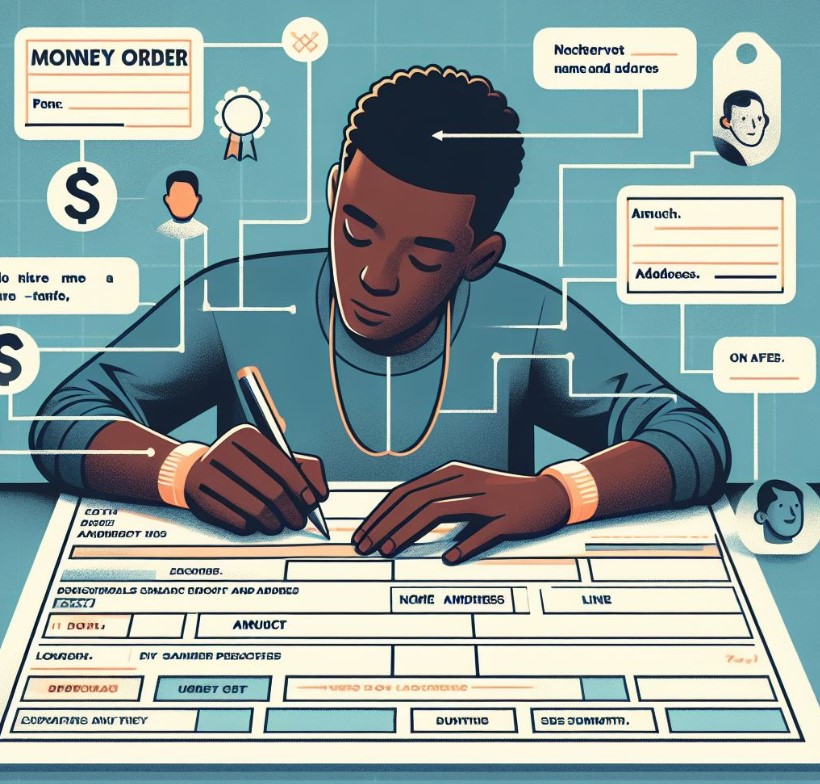
International Money Orders
International money orders serve as a secure method to send funds abroad, but they come with their own set of rules and limitations. They are available through select postal services and financial institutions, with caps on the amount you can send.
Currency conversion rates, fees, and international regulations play significant roles in these transactions. Understanding the specific requirements of the destination country is crucial for a smooth transaction, making this payment method favorable for those looking to support a family or fulfill obligations overseas safely.
Money Orders vs. Certified Checks
Comparing money orders and certified checks highlights distinct differences and applications of each. A certified check is a personal check verified by a bank, confirming that sufficient funds are available in the account.
While certified checks are generally seen as more secure, particularly for larger amounts, they require a bank account, unlike money orders.
This section helps individuals decide which payment method best suits their financial transactions, taking into account factors like transaction size, security concerns, and recipient preferences.
Digital Alternatives to Money Orders
In the digital age, various online payment platforms offer alternatives to traditional money orders. Services like PayPal, Venmo, and Zelle provide instant transfers and cater to those with or without traditional bank accounts. These platforms often feature user-friendly interfaces, lower fees, and faster processing times.
However, users must be mindful of security practices to protect their information and funds online. This section explores the advantages and disadvantages of digital payment methods compared to money orders, helping readers navigate modern financial transactions.
The History and Evolution of Money Orders
The history and evolution of money orders reflect broader changes in commerce and communication. Initially introduced as a safe way to send funds over long distances, money orders have adapted over time, incorporating new technologies and serving diverse populations.
This section delves into the origins of money orders, their development, and their place in today’s financial ecosystem, providing a fascinating glimpse into how a simple financial instrument has evolved to meet changing consumer needs.
Reporting Lost or Stolen Money Orders
When money orders are lost or stolen, timely reporting is crucial to protect your funds. This section will guide you through the process of alerting the issuer and taking the necessary steps to secure a replacement or refund.
It’s vital to keep a copy of your money order receipt, as it contains essential information needed for reporting. The overview would cover the implications of lost money orders, how to mitigate risks, and the typical resolution process, offering peace of mind for senders in distressing situations.
Money Order Regulations and Legal Aspects
Understanding the regulations surrounding money orders is essential for both senders and recipients. This section will delve into the legal framework governing money orders, including anti-money laundering laws, fraud prevention measures, and consumer protection rights.
It would provide an overview of the compliance requirements for issuers and the legal recourse available to consumers in case of disputes or fraud, ensuring readers are well-informed of their rights and responsibilities.
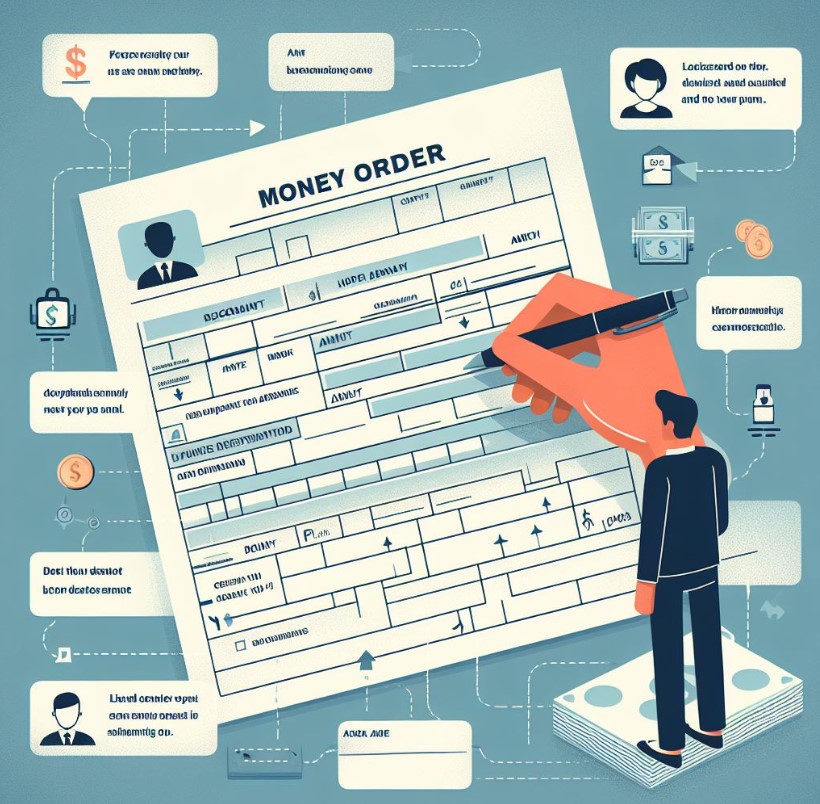
Money Orders for Budgeting and Financial Planning
Incorporating money orders into budgeting and financial planning can be an effective strategy for managing finances. This section will explore how money orders can help in controlling spending, allocating funds for specific purposes, and tracking payments efficiently.
It would offer insights into using money orders as a tool for financial discipline, especially for those without access to traditional banking services or those looking to avoid overdraft fees and maintain strict budgetary controls.
Impact of Technology on Money Orders
The impact of technology on money orders reflects the shifting landscape of financial transactions. This section will examine how digital innovations have transformed the way money orders are issued, processed, and received.
It would cover the integration of electronic processing systems, mobile applications, and online tracking features, which enhance the convenience and security of using money orders.
The overview would also discuss the future of money orders in the digital age and potential technological advancements on the horizon.
Money Orders in International Trade and Commerce
Money orders play a significant role in international trade and commerce, facilitating cross-border transactions and payments. This section would cover the use of money orders for international business dealings, including the benefits and limitations compared to other forms of payment.
It would provide an overview of currency exchange considerations, regulatory compliance, and the logistical aspects of sending money orders abroad, offering valuable insights for businesses and individuals engaged in global commerce.
Food Lion Cash Western Union Money Orders
Food Lion sells Western Union money orders but does not offer cashing services for them. You can buy a money order at Food Lion with a daily limit of $500 per transaction.
The fee for purchasing a money order is generally less than $1, but it’s advisable to check with your local Food Lion for exact pricing. Payment for the money order can be made using cash, debit, or credit card, although not all locations accept credit cards for this service.
Time Does Food Lion Stop Doing Money Orders
Food Lion’s money order services are available during the same hours as their customer service desk. Since store hours can vary, it’s recommended to check with your local Food Lion for specific hours. Generally, most Food Lion stores open around 7 AM and close at 9 PM.

UPS Give Money Orders
Currently, there is no information available from the sources provided about UPS issuing money orders. Typically, UPS stores focus on shipping and mailing services and may offer some financial services like notary services, but they do not traditionally provide money orders. It’s best to contact your local UPS store directly to inquire about the services they offer.
WAWA Have Money Orders
The information on whether WAWA provides money order services is not available from the sources provided. WAWA is known primarily as a convenience store and gas station and typically offers a variety of services, but for specific offerings like money orders, it would be advisable to contact a WAWA store directly.
UPS Store Sell Money Orders
The details regarding the UPS Store offering money orders were not covered in the provided sources. As UPS Stores primarily provide shipping, packaging, and mail services, their offerings regarding money orders can vary by location. For accurate information, visiting or contacting your nearest UPS Store would be beneficial.
Rite Aid Do Money Orders
The sources did not specifically mention Rite Aid’s money order services. Rite Aid pharmacies typically offer a range of services, which may include financial services. However, availability can vary by location. To find out if a Rite Aid near you offers money orders, contacting the store directly would provide the most accurate information.
ACME Do Money Orders
There was no specific information provided from the sources regarding ACME’s money order services. ACME Markets are known to provide a variety of services, including some financial ones. To confirm whether they offer money orders, the best approach is to reach out to your local ACME store.
Cross Out A Mistake On A Money Order
There was no detailed guidance provided in the sources for correcting a mistake on a money order. Generally, it’s advised not to cross out mistakes on a money order as it can make the document appear tampered with. If you make a mistake, the safest option is usually to ask for a replacement or contact the issuer for their recommended correction procedure.
Circle K Do Money Orders
The information regarding Circle K’s provision of money order services was not included in the resources obtained. Circle K, being a global chain of convenience stores, may offer different services regionally. For accurate details about money order services, contacting the nearest Circle K store would be advisable.
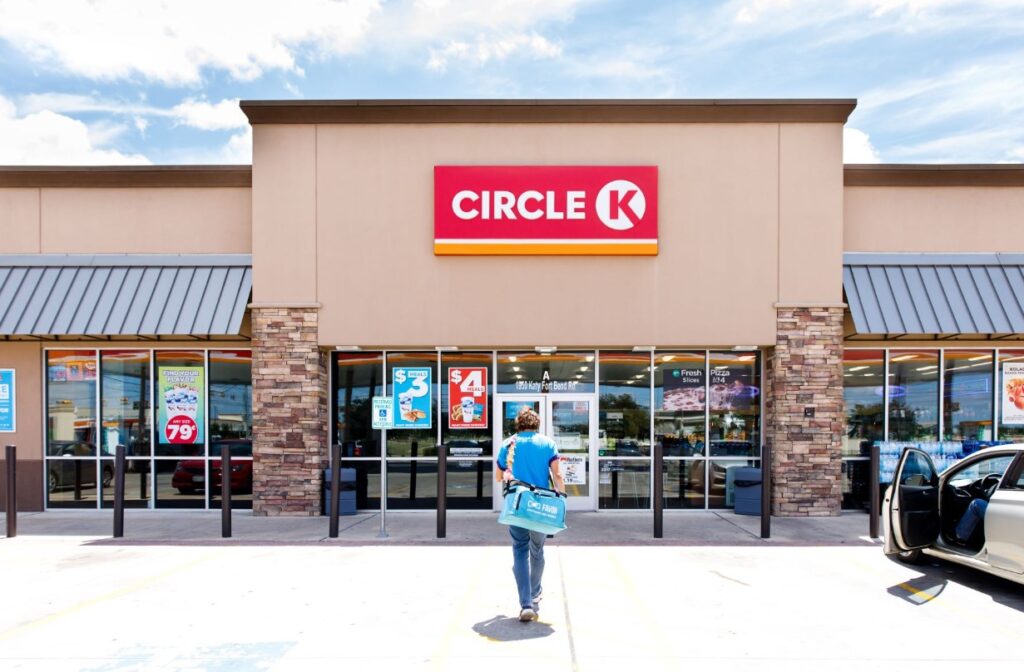
Albertsons Sell Money Orders
There was no direct information from the sources about Albertsons offering money order services. Albertsons is a large grocery store chain that may provide various customer services, including potential money orders. For specific services, it’s recommended to contact the nearest Albertsons directly.
Money Orders At QT (QuikTrip)
QuikTrip offers Western Union money orders. The fees for purchasing money orders at QuikTrip range from $1.50 to $3.00, depending on the amount. Typically, a money order worth $300 or less will incur a $1.50 fee.
There are limits in place, with customers able to purchase money orders up to $950 daily. Remember, QuikTrip requires cash payment for money orders, so ensure you have sufficient cash when planning to buy one.
Money Order At Safeway
While specific details on Safeway’s money order services weren’t directly addressed, Safeway typically offers them as part of its financial service offerings. Most grocery stores like Safeway provide money orders through third-party providers like Western Union or MoneyGram. The fees and limits can vary by location, so it’s best to visit or call your local Safeway store for the most accurate information.
Stater Brothers Do Money Orders
Stater Brothers is another grocery chain that typically provides money order services. Similar to other retail locations, they may offer money orders through providers like Western Union or MoneyGram. Limits and fees can vary, so contacting your nearest Stater Brothers for specific details is advisable.
Publix Charge For Money Orders
Publix offers money order services, typically through Western Union. While I don’t have the exact fee structure for Publix, grocery stores usually charge a nominal fee for this service. It’s common for fees to range from $0.65 to $1 or more per money order. Check with your local Publix store for precise fees and transaction limits.
Quiktrip Sell Money Orders
Yes, QuikTrip sells money orders. They use Western Union for their money order services and typically charge between $1.50 to $3.00 per money order. The limit for money orders at QuikTrip can go up to $950 per day. Payment must be made in cash, and the process includes visiting the cash counter, specifying your requirements, paying the amount plus the fee, and filling out the money order.
Shoprite Do Money Orders
ShopRite stores typically provide money order services, often via Western Union or another similar service. As with other grocery stores, fees and limits may vary by location. It’s recommended to contact your local ShopRite directly to obtain the most current information regarding their money order services.
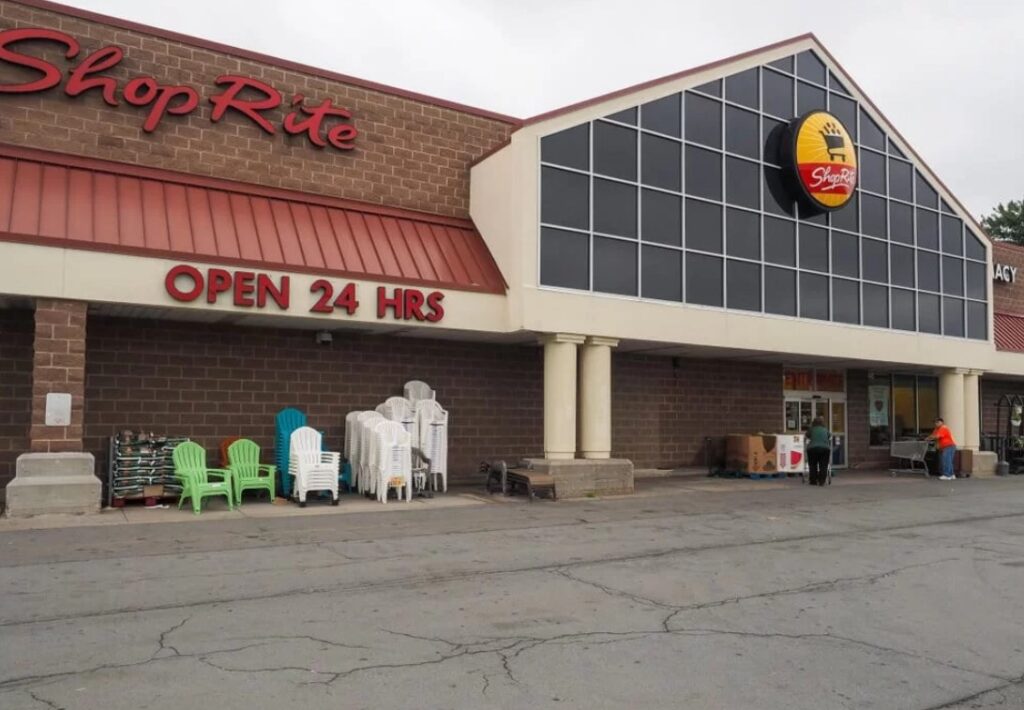
Buy A Money Order With A Gift Card
Purchasing money orders with a gift card is generally not possible. Money orders typically require payment in cash or directly from a bank account or a debit card. Stores and financial institutions need to ensure funds are available and legitimate, which is more straightforward with cash or debit transactions.
If you’re looking to convert a gift card into a form that can be used for a money order, consider using the gift card to purchase items or services directly or converting it to cash through a reseller, although be mindful of potential fees and fraud risks.
Money Orders and Financial Inclusion
Money orders serve as a critical tool for financial inclusion, offering an accessible option for those outside the traditional banking system. This section will discuss how money orders provide a bridge for unbanked and underbanked populations to participate in financial activities.
It would explore the role of money orders in promoting financial inclusion by enabling payments, remittances, and secure transactions without requiring a bank account. Highlighting the societal benefits, this overview would delve into the importance of accessible financial tools in reducing economic disparities.
Environmental Impact of Paper-Based Money Orders
The environmental impact of paper-based money orders is an emerging concern as society moves towards sustainability. This section will examine the ecological footprint associated with producing, distributing, and processing paper money orders.
It would discuss alternative, eco-friendly options and the shift towards digital money orders and electronic payment methods. By highlighting the environmental considerations, this overview would encourage readers to weigh the ecological consequences of their financial choices.
Money Orders and Emergency Situations
In emergencies, money orders can play a vital role in providing immediate financial support. This section would cover the use of money orders for urgent transactions, such as disaster relief efforts, sudden personal emergencies, or other scenarios requiring quick and secure payment methods.
It would provide insights into the advantages and limitations of using money orders in time-sensitive situations and offer guidance on how to efficiently handle financial transactions during emergencies.
Comparing Money Orders with Prepaid Debit Cards
Money orders and prepaid debit cards are popular tools for managing finances without a traditional bank account. This section will compare and contrast these two payment methods, highlighting their respective benefits and drawbacks.
It would discuss the suitability of each option for different financial needs, such as budgeting, travel, and online transactions. By offering a comprehensive comparison, this overview would help readers make informed decisions about their payment choices.
Money Orders in Cultural and Migrant Economies
Money orders hold a significant place in cultural and migrant economies, often used for remittances and supporting family members abroad. This section will explore the cultural significance and economic impact of money orders within diaspora communities.
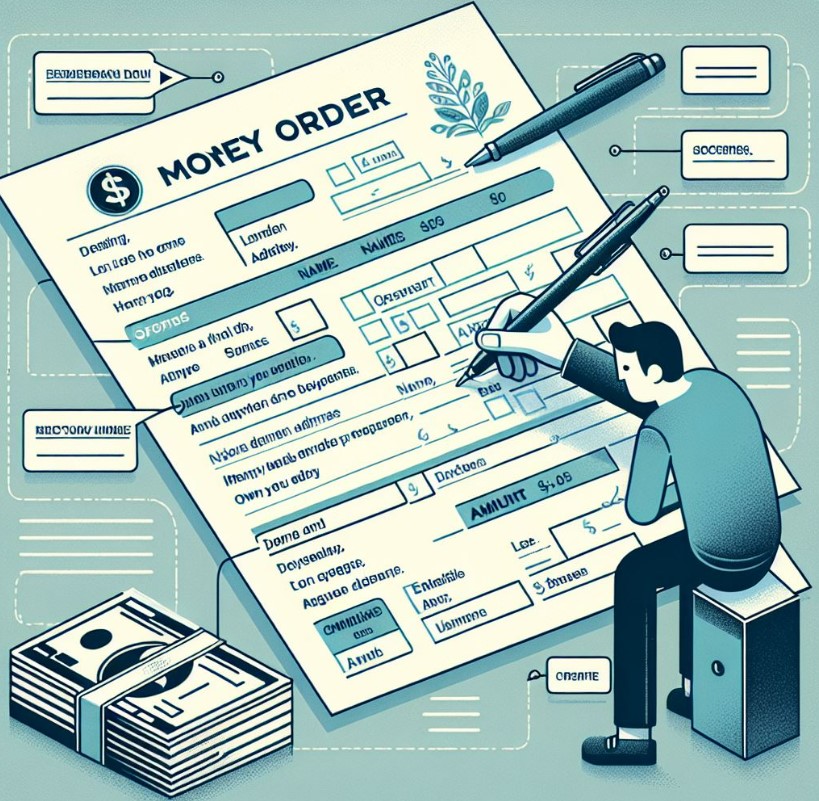
It would discuss how money orders facilitate cross-border financial support, contribute to the livelihoods of families in different countries, and play a role in the global circulation of money. This overview would provide a deeper understanding of the social and economic dynamics behind the use of money orders in diverse cultural contexts.
Cybersecurity Measures for Digital Money Orders
In the digital age, cybersecurity measures for digital money orders are paramount to ensure safe and secure transactions. This section will delve into the security protocols and measures implemented to protect electronic money order transactions from cyber threats.
It would discuss encryption technologies, authentication methods, and secure communication channels that safeguard user data and funds during the transfer process.
Highlighting the best practices for users and institutions, this overview aims to raise awareness about the importance of cybersecurity in modern financial activities.
Money Orders and Education Expenses
Money orders are commonly used to manage education expenses, providing a straightforward method for paying tuition, fees, and other school-related costs.
This section will explore the advantages of using money orders for educational payments, particularly for those without access to banking services or who prefer to avoid credit card debt.
It would offer tips on how to securely and efficiently use money orders for educational purposes, ensuring that payments are timely and accurately processed.
Money Orders for Small Business Operations
For small business owners, money orders can be an essential tool for handling various operational expenses. This section will discuss the utilization of money orders in small business settings, from vendor payments to service charges.
It would highlight the benefits of using money orders for business transactions, including the ease of record-keeping, budget management, and avoiding high transaction fees. Additionally, it would provide practical advice on managing and tracking money orders to maintain financial order and transparency in business operations.
Future Trends in Money Order Services
Exploring future trends in money order services sheds light on how this payment method might evolve with technological advancements and changing consumer preferences.

This section will speculate on the potential developments in money order services, such as the integration of blockchain technology, mobile app innovations, and cross-platform functionalities.
It would discuss how these trends could enhance the convenience, security, and global reach of money orders, addressing the changing needs of users in a fast-paced financial landscape.
Money Orders and Charitable Giving
Utilizing money orders for charitable giving offers a secure way to donate to causes and organizations. This section will cover the role of money orders in philanthropy, providing donors with a traceable and reliable method to support their chosen causes.
It would explore the benefits of using money orders for donations, such as ensuring that funds reach the intended recipient and allowing for anonymity if desired. Additionally, this overview would offer guidance on how to properly document and report charitable donations made through money orders for tax purposes.
Future Of Money Orders
The future of money orders is evolving with the introduction of electronic money orders, offering a digital alternative to traditional paper ones. This new form enables secure and convenient transactions without needing a bank account or credit card.

As financial technologies advance, electronic methods and online bill payments are becoming more prevalent, leading to a decrease in the use of traditional money orders and checks.
Conclusion
To conclude, What Is A Money Order? Money orders serve as a reliable and accessible method for conducting transactions, especially for individuals lacking bank accounts or preferring not to use cash. They maintain a balance between security and convenience, making them a favored choice for controlled and traceable payments.

Muhammad Talha Naeem is a seasoned finance professional with a wealth of practical experience in various niches of the financial world. With a career spanning over a decade, Talha has consistently demonstrated his expertise in navigating the complexities of finance, making him a trusted and reliable figure in the industry.
